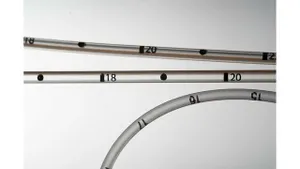Compostable resin takes the deep freeze
A polylactic acid-based polymer (PLA), CP-INJ-13, offers biodegradability during composting of what is claimed to be the first-ever such bioresin that is freeze-tolerant. The material is said to retain structural rigidity in freezing temperatures as low as –35°C for frozen food applications such as injection molded ice cream containers. The producer says it features good flexibility compared to other PLA-based products, tensile elongation that is about 10-times greater than conventional PLA grades, and a notched IZOD impact measurement of 2.5 lb-ft/in.
January 26, 2009
A polylactic acid-based polymer (PLA), CP-INJ-13, offers biodegradability during composting of what is claimed to be the first-ever such bioresin that is freeze-tolerant. The material is said to retain structural rigidity in freezing temperatures as low as –35°C for frozen food applications such as injection molded ice cream containers. The producer says it features good flexibility compared to other PLA-based products, tensile elongation that is about 10-times greater than conventional PLA grades, and a notched IZOD impact measurement of 2.5 lb-ft/in. “The new addition to our product lineup is a direct result of customer demand for freeze-capable bioplastics products,” says William Kelly, the company’s Sr. VP, technology. It is certified as biodegradable and compostable in both the U.S. and Europe according to Biodegradable Products Institute, ASTM, and European Bioplastics (EN) standards.
Cereplast Inc., Hawthorne, CA, U.S.A.; +1 310-676-5000; www.cereplast.com
About the Author(s)
You May Also Like


